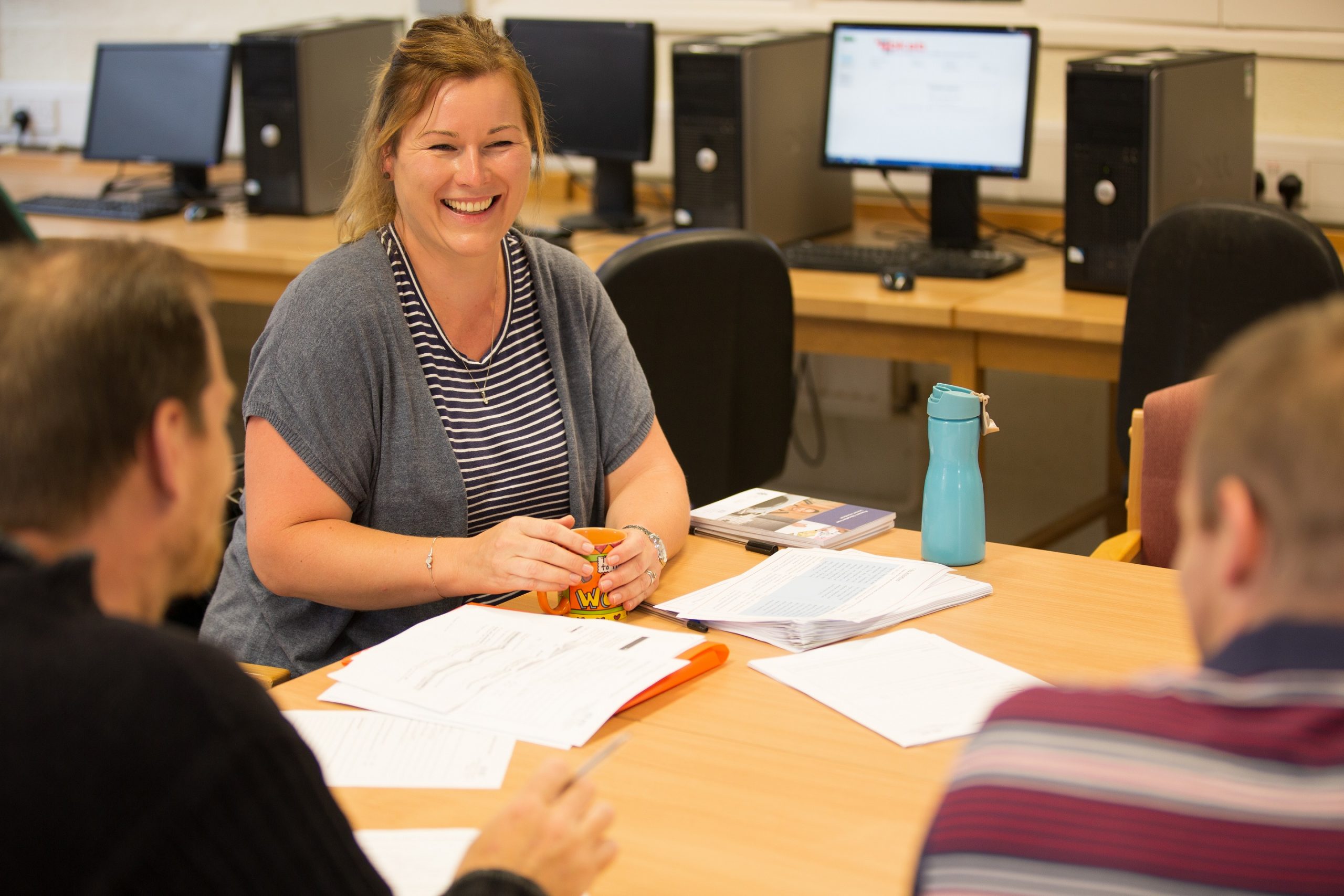
PET’s Welsh Prisons Project (WPP) has pioneered many of the changes we have made to improve our support for learners in recent times.
Today we are launching a report on the achievements of its second phase, which ran from September 2017 to December 2020. Here Pwyll ap Stifin, PET’s Project Management Officer, reflects on the project’s impact.
Read the new report hereThe WPP was initially launched at the end of 2015 as a space for trialling new forms of support for PET’s learners.
We launched new handbooks for learners; distributed dictionaries and other study support materials; worked with peer mentors; and developed a one-to-one information, advice and guidance service to support people with their learning and their plans for after release.
Our approach as a project team has always been based on a willingness to experiment, to see what works and learn lessons.
We have always been supported by PET to try things that the charity has not tried before, recognising that developing better ways of supporting our learners always carries the risk that things will not work perfectly the first time.
The longevity of the project is largely due to the fact that we’ve always taken the view that we’re here to develop long-term, sustainable solutions and aren’t going to be discouraged by setbacks.
Watch the WPP’s new animation celebrating learners’ successes hereWorking together with our learners
Throughout our work we have also placed a great focus on co-production with people in prison. At the outset of the project, we learnt that in order to develop initiatives that were fit for purpose we had to work closely with prison learners themselves, as well as with educational staff. We have always attempted to go further than merely consult with our learners, instead inviting them to work directly with us on our projects.
One of the many examples of this approach is the peer mentoring course we developed with learners from HMP Prescoed and HMP Parc.
When developing an accredited course to support people with their peer mentoring skills, we worked with two cohorts of prison learners, many of whom were experienced peer mentors in their own right. They restructured and rewrote the course while studying it, making it relevant to a prison environment.
The result is a course that conforms to rigorous accreditation standards but benefits from the insights and experience of those who have been there and done it.
A taste of distance learning
This approach – rooted in collaboration and experimentation – was also central to the study skills courses we developed.
We had seen over the course of our work that study skills – such as note-taking, essay writing, and preparing for exams – were not well supported for prison learners. Working with a PhD student, we ran a number of workshops in HMP Cardiff and HMP Prescoed where learners were able to make changes to the courses as they were being developed.
As part of our response to the Covid-related restrictions introduced in prisons in March last year, we produced four of these study skills courses – each focussing on a different topic – and distributed them in prisons across England and Wales.
At HMP Berwyn we had the opportunity to go further and developed digital versions of the courses for distribution to learners on the prison’s in-cell digital platform. The courses were successfully rolled out across the prison, with 210 learners completing them during a two-week period in July 2020.
These are just two examples of our work in the Welsh prisons over the last few years. With fantastic images produced by visual artist and PET alumna Erika Flowers, the full report gives a flavour of everything else we have been up to – read it here.